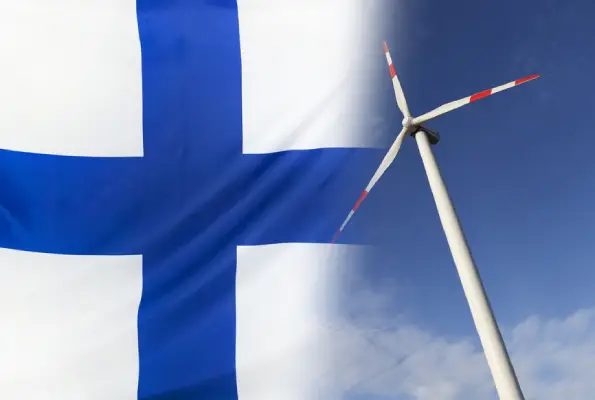The Finnish government rejected 16 offshore wind power exploitation rights applications in the Exclusive Economic Zone (EEZ). While communicating the decision with the media, the Ministry of Economic Affairs and Employment also noted that several energy extraction areas in the Gulf of Bothnia overlap each other.
The judgement does not preclude offshore wind projects in the affected maritime zones, the Ministry stated further, as it rejected exploitation rights applications to “create a predictable, clear, and fair investment environment, considering the overall interests of society and the negative consequences that granting exploitation rights would have on the guiding effects of the new act under preparation.”
The Ministry stated, “Offshore wind project approvals in Finland’s EEZ should be based on clear rules. The exclusive economic zone legislative initiative under preparation will establish these rules.”
“The administration wants to pick the first areas for wind power projects in the exclusive economic zone and start tendering by the end of next year based on clear guidelines in the new act,” it added further.
Negative applicants include Halla Offshore Wind Oy, Laine Offshore Wind Oy, Navakka Offshore Ab, Wellamo Offshore Ab, Skyborn Renewables, Ilmatar Energy Oy, Suomen Hyötytuuli Oy, and Pohjan Puhuri and Pohjan Viima Oy.
The Ministry further reported that the corporations had sought exclusive exploitation rights for offshore wind power for 40–70 years. The projects with exclusive rights are at varying phases of development, it noted.
Some schemes have environmental impact assessments underway, while others are applying for research permits to begin research.
The Ministry continued, “Section 6 of the Finnish Exclusive Economic Zone Act allows exploitation rights applications. Only offshore wind power projects have received consent to investigate the project area. An offshore wind project also needs Section 7 construction consent.”
“The applied rights of exploitation would be between these stages and guarantee an exclusive right to offshore wind power use in a specified area for a fixed term,” it noted.
The present Act on the Exclusive Economic Zone does not account for offshore wind power’s unique characteristics, such as multiple enterprises competing for the same sea area. According to the Act, the government has broad discretion over exploitation rights.
It does not specify requirements for granting or rejecting exploitation rights. Helsinki can evaluate many factors due to its broad discretion. The Ministry of Economic Affairs and Employment will lead a legislative endeavour to clarify offshore wind power restrictions.
The Ministry said Prime Minister Petteri Orpo’s government’s goal is to ambitiously promote offshore wind generation in the Baltic Sea and provide Finland with a competitive location advantage.
It further added that the ongoing legislative project will quickly define legislation, permit processes, compensation, and tax matters for waters in the country’s exclusive economic zone and coordinate them with territorial water and land project rules.
The Ministry also believes the legislative revision is necessary to give wind power exploitation firms legal assurance, while stating that the legislative project’s most pressing issues are competitive tendering for exclusive rights, permits to replace consents under the current Act on the Exclusive Economic Zone, and exclusive economic zone legislation.
The Energy Authority would organise competitive bidding. The administration plans to release the legislation draft for views in May 2024. On 23 May 2024, the Ministry of Economic Affairs and Employment will host an online stakeholder event on the legislative initiative as a Teams meeting (In Finnish).
The Finnish Wind Association stated the government needed “straightforward decisions that define the conditions for investments in our nation” to promote offshore wind power.
It claimed Finland’s offshore wind power has great potential for clean electricity and is crucial to repatriating substantial industrial investments like hydrogen projects. The group further asserted that Helsinki must now make decisions that create an economic zone vision and investment climate that provide strong circumstances for offshore wind power project development.
Finnish Wind Association lobbying director Matias Ollila said, “Offshore wind power project owners have invested heavily in their projects. The new economic zone offshore wind power law and future tenders are raising hopes. The decision in practice slows project development. Careful consideration of domestic offshore wind power development conditions is crucial. The past government left the offshore wind power property tax model unfinished. You can continue developing it.”
“Offshore wind property taxes reform seems to be stalling again, now as part of the property tax reform slowdown,” the official continued further.
The Finnish Wind Energy Association believes that offshore wind power property taxation should be a legal initiative for clean electricity production and green transition investments.
“We shouldn’t wait too long for economic zone tenders because competition in the Baltic Sea region is severe and there are offshore wind power opportunities abroad outside Finland,” it noted.



